To fight segregation in Milwaukee education, activists set up 'freedom schools' in 1964
Editor's note: This story was adapted from an article published in the Journal Sentinel's Green Sheet in May 2017.
Sixty years ago, to demonstrate the impact of segregation in Milwaukee, civil rights activists took the city to school — by taking students out of school.
Frustrated by a lack of action from Milwaukee Public Schools in addressing de facto segregation in the city's schools — and the corresponding lack of support for schools in the city's predominantly Black neighborhoods — members of the Wisconsin conference of the NAACP, the Congress of Racial Equality, and the Near Northside Nonpartisan Conference formed the Milwaukee United School Integration Committee, or MUSIC, on March 1, 1964.
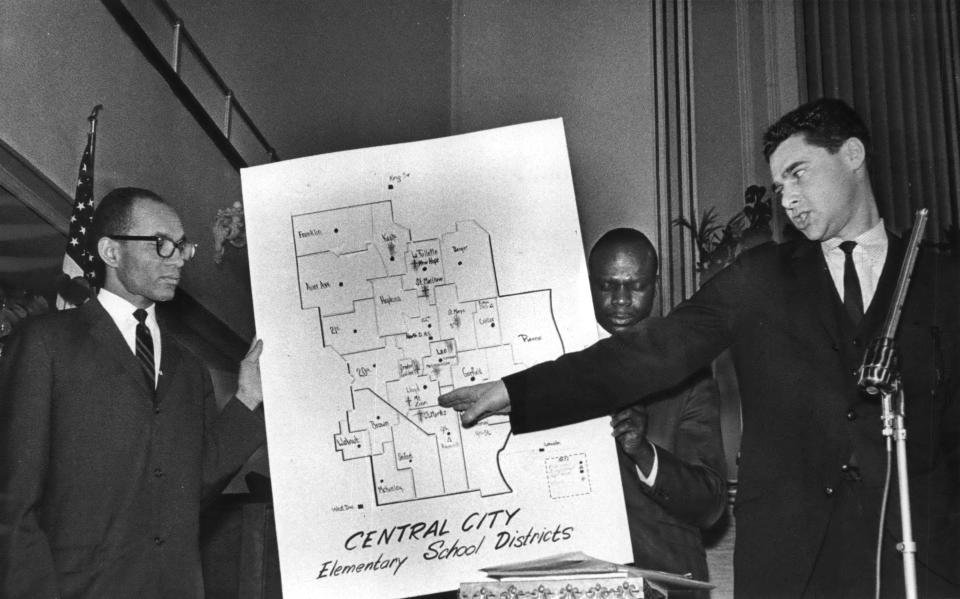
With state representative, lawyer and activist Lloyd Barbee as chairman, MUSIC planned a one-day school boycott to protest the School Board's inaction on integration and set a date, May 18 — 10 years and one day after the U.S. Supreme Court ruled, in Brown v. Board of Education, that segregation of public schools was unconstitutional.
The morning of May 18, the MUSIC boycott sent pickets to 12 MPS schools. In their place, boycott organizers held "freedom schools" at 26 neighborhood churches and centers.
Comedian-activist Dick Gregory joins the Milwaukee fight
Among those joining the MUSIC campaign: Dick Gregory, one of America's leading topical comedians and an activist on the front line of civil rights efforts nationwide.
Gregory, who had flown to Milwaukee from a tour stop in Seattle, joined pickets outside MPS' administration building at 5225 W. Vliet St.
"What you do here," The Milwaukee Journal quoted him as saying in a May 18, 1964, story, "will help in Chicago, and from one end of the country to the other, and all over the world. The great thing about this is not Black against white, it is right against wrong."
From Vliet Street, Gregory went to a freedom school at Christ Presbyterian Church, 1729 W. Walnut St., where he urged about 200 teenagers to stay involved and stay nonviolent.
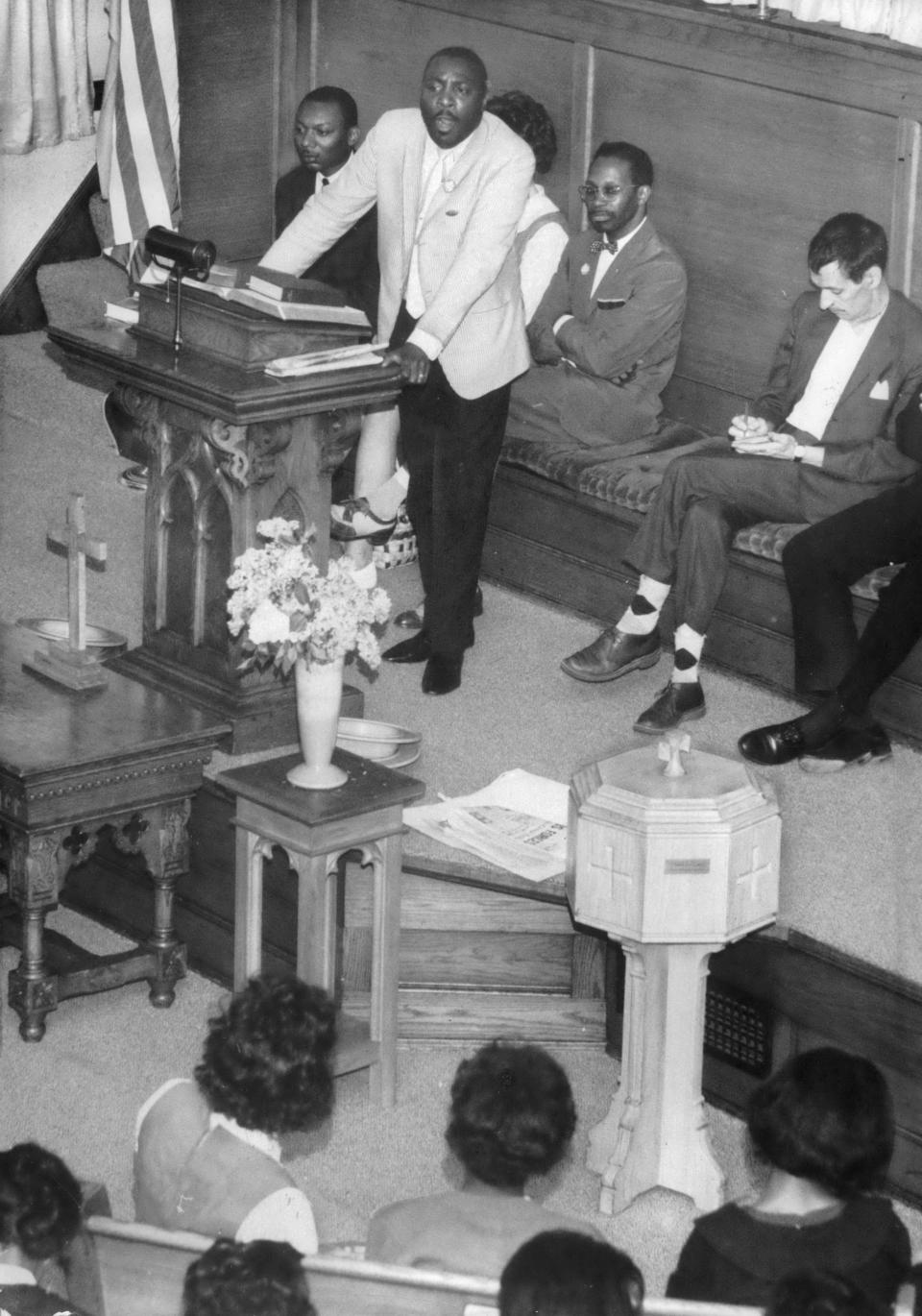
Gregory was scheduled to appear at four schools that morning because he had to catch a plane at noon to get to a civil rights rally that night in Flint, Michigan, the Milwaukee Sentinel reported.
But Gregory couldn't "turn it off." The comedian-activist wound up talking to students at seven stops, including the Elks Club No. 1115, 2708 N. Third St. (now King Drive), and St. Matthew Christian Methodist Episcopal Church, 2944 N. Ninth St.
He missed his plane.
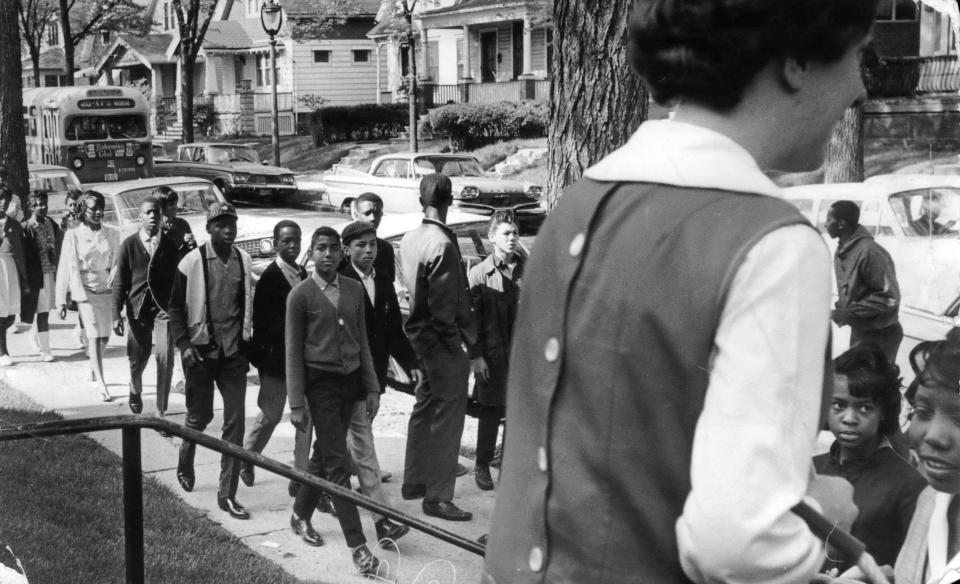
MUSIC boycott was the first in a series of fights against segregated schools
MPS estimated that, in all, 11,500 pupils took part in the boycott; organizers put the number at closer to 15,000, about 60% of the district's Black students.
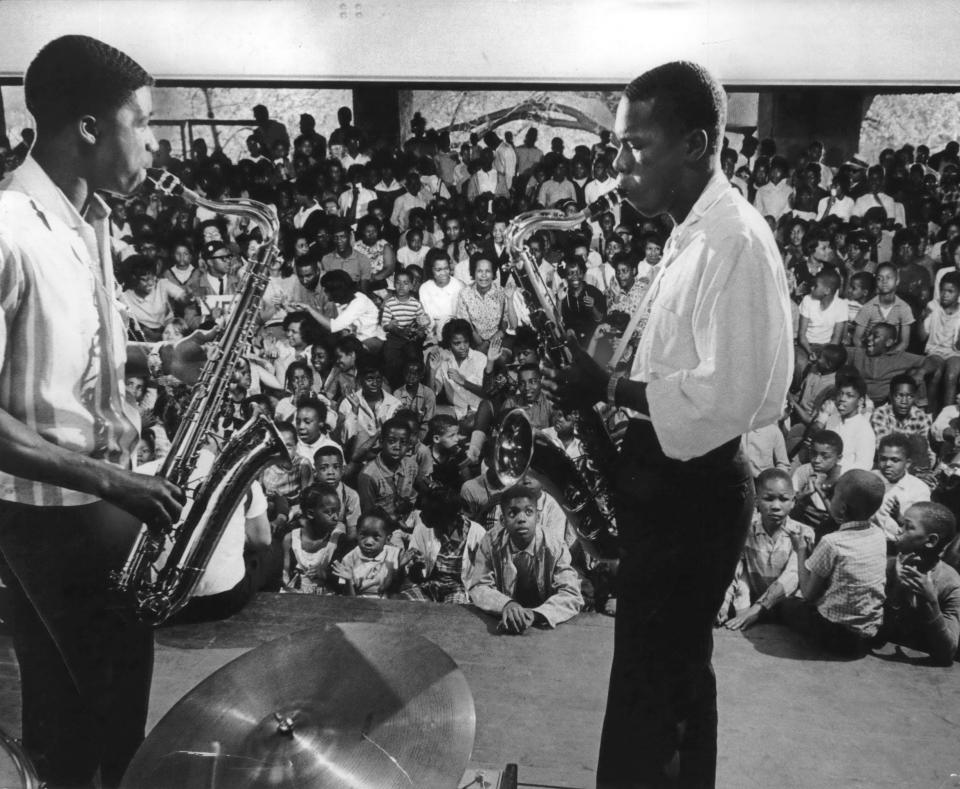
The Sentinel reported on May 20, 1964, that schools on the city's north side were "back to normal" the day after the boycott. A second MUSIC-led boycott, in October 1965, lasted 3.5 days; Gregory returned for the 1965 boycott, and he came back two years later for several of the 200 days of protest marches calling for open housing in Milwaukee.
In 1965, Barbee filed a lawsuit in federal court to force the city's schools to integrate; the court finally ruled in his favor in 1976, forcing Milwaukee schools to take steps to desegregate.
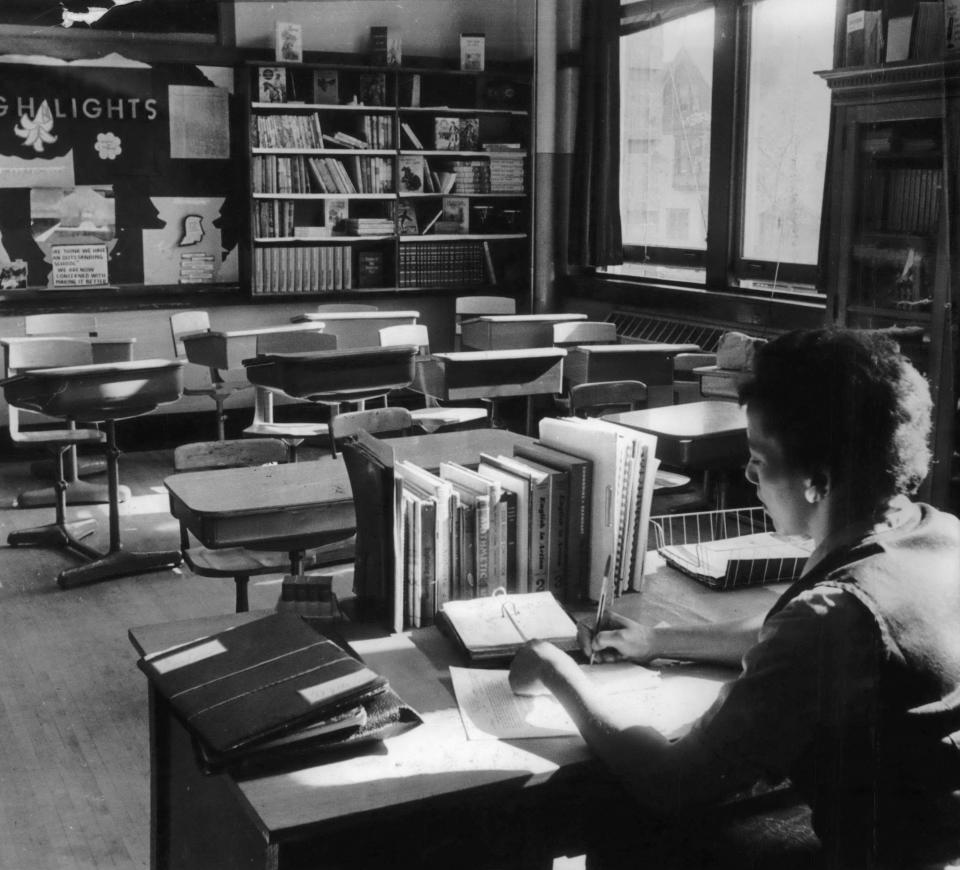
What is From the Archives?
Each week, From the Archives dips into the files of The Milwaukee Journal, Milwaukee Sentinel and Milwaukee Journal Sentinel to retell stories about memorable places, people and moments from years past. The stories will often include an array of additional photos online.
This article originally appeared on Milwaukee Journal Sentinel: Activists set up 'freedom schools' in Milwaukee to fight segregation

